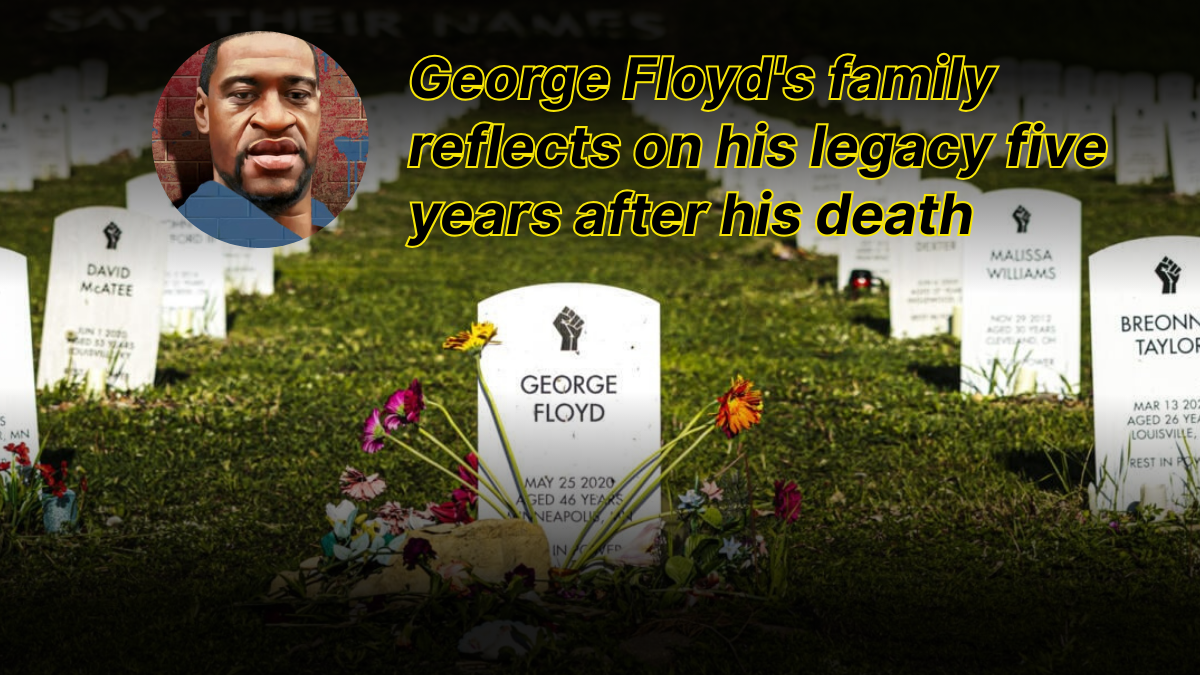On May 25, 2025, the family of George Floyd commemorated the fifth anniversary of his death with a press conference and memorial service in Houston, Texas. Floyd’s death in 2020, under the knee of Minneapolis police officer Derek Chauvin, sparked global protests and a renewed focus on racial justice and police reform. Five years later, his family continues to advocate for systemic change and remembrance of his legacy.
Summary Table: George Floyd’s Family Reflects on His Legacy

| Key Detail | Description |
|---|---|
| Event | Fifth anniversary of George Floyd’s death |
| Date | May 25, 2025 |
| Location | Houston, Texas; Minneapolis, Minnesota |
| Family’s Message | Calls for continued police reform and social justice efforts |
| Notable Speakers | Brooke Williams (niece), Arianna Delane (great-niece), Rev. Al Sharpton, Attorney Ben Crump |
| Federal Policy Shift | DOJ moves to dismiss police reform agreements with Louisville and Minneapolis |
| Community Response | Memorial services, public gatherings, and renewed advocacy for racial justice |
| Official Site | U.S. Department of Justice |
Family Reflections and Calls for Action
During the press conference held outside the Houston cemetery where George Floyd is buried, family members shared personal reflections and emphasized the importance of continued activism.
Brooke Williams, Floyd’s niece, stated, “I feel like it took nine minutes and 29 seconds to change the world, but it takes for us to be the change that we want to see.” She urged the community to engage politically and support officials who advocate for police reform and social justice.
Arianna Delane, Floyd’s great-niece, remarked, “My uncle changed the world,” highlighting the international movement that followed his death and the ongoing need for accountability in law enforcement.
National and Community Observances
In addition to the Houston memorial, communities across the United States held events to honor George Floyd’s memory. In Minneapolis, thousands gathered at George Floyd Square, the site of his death, participating in concerts, a street festival, and a candlelit vigil. These events served both as a tribute and a call to action for continued efforts toward racial equality and justice.
Reverend Al Sharpton, speaking at the Houston service, emphasized the enduring struggle against systemic racism, stating, “The struggle is a marathon, not a sprint.” He criticized attempts to reverse progress on civil rights and reaffirmed the commitment to achieving justice in Floyd’s name.
Legal Developments and Policy Reversals
Coinciding with the anniversary, the U.S. Department of Justice announced plans to dismiss police reform agreements, known as consent decrees, with the cities of Louisville, Kentucky, and Minneapolis. These agreements were established following investigations into the police departments after the deaths of Breonna Taylor and George Floyd, respectively.
Assistant Attorney General for Civil Rights Harmeet Dhillon stated that the Biden administration’s approach relied on “faulty legal theories” and that such decrees increased bureaucracy, hindering police recruitment and retention. This move has been met with criticism from civil rights advocates and Floyd’s family, who view it as a step backward in the pursuit of justice and accountability.
Attorney Ben Crump, representing the Floyd family, condemned the decision, asserting that efforts to minimize and roll back progress made after Floyd’s death would not be judged kindly by history.
Ongoing Challenges and Community Initiatives
Despite initial momentum, many of the reforms and commitments made in the wake of George Floyd’s death have faced setbacks. A 2025 Pew survey indicates that a significant portion of Americans believe efforts to address racial inequality have not led to meaningful change. Activists and community leaders continue to advocate for systemic reforms, emphasizing the importance of sustained engagement and policy change at local and national levels.
Organizations such as Black Lives Matter and the Movement for Black Lives persist in their efforts to combat systemic racism and promote equity. Community investment, support for minority-owned businesses, and representation in decision-making processes remain focal points in the ongoing struggle for justice.
Frequently Asked Questions
Q: What was the significance of George Floyd’s death?
A: George Floyd’s death in 2020 became a catalyst for global protests against police brutality and systemic racism, leading to widespread calls for reform.
Q: What are consent decrees in the context of police reform?
A: Consent decrees are legally binding agreements between the Department of Justice and local police departments to implement specific reforms aimed at addressing patterns of misconduct.
Q: Why did the DOJ move to dismiss the agreements with Louisville and Minneapolis?
A: The DOJ cited concerns over increased bureaucracy and questioned the legal basis of the agreements, arguing they undermined local control of police departments.
Q: How has the community responded to the DOJ’s decision?
A: Civil rights advocates and Floyd’s family have criticized the move, viewing it as a regression in efforts to achieve police accountability and reform.
Q: What steps can individuals take to support police reform?
A: Individuals can engage in local politics, support organizations advocating for justice, participate in community initiatives, and educate themselves on issues related to systemic inequality.
Conclusion
Five years after George Floyd’s death, his family and communities across the nation continue to honor his legacy through advocacy and calls for systemic change. While challenges persist, the commitment to justice and equality remains steadfast, underscoring the enduring impact of Floyd’s life and the movement it inspired.
For More Information Click Here







